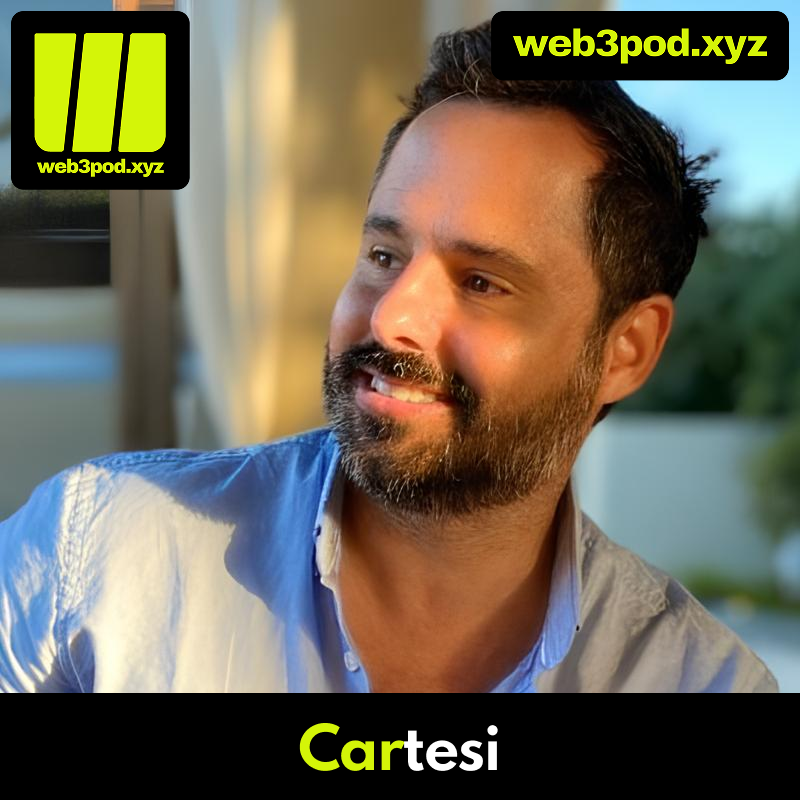Bitcoin’s next frontier isn’t financial — it’s programmable
.png)
In the early days, Bitcoin’s greatest innovation was trustless value transfer. But now, a second act is emerging—not just as a store of value, but as a programmable platform.
In Episode 185 of Web3 with Sam Kamani, I sat down with Edan Yago, co-founder of Bitcoin OS, to unpack what’s possible when you give Bitcoin the power to compute, build, and evolve.
And it’s not theory. It’s already happening.
What is Bitcoin OS?
Bitcoin OS is a universal compiler—think of it as a smart contract engine for Bitcoin. Rather than launching a new chain or forking an old one, it extends Bitcoin’s capabilities while preserving its security and decentralization. Developers can build applications like programmable tokens, private transactions, and decentralized compute—all directly on Bitcoin.
That’s a major shift in how we think about what Bitcoin can do.
From digital gold to decentralized economy
Yago explains that Bitcoin’s potential was always bigger than “digital gold.” But infrastructure and culture held it back. Now, with breakthroughs like Taproot, Ordinals, and Zero-Knowledge Proofs on-chain, that’s changing.
Bitcoin OS is enabling:
- Trustless BTC bridges
- Private transactions using ZK proofs
- Programmable tokens with custom business rules (staking, voting, asset logic)
- Scalable execution environments for full dApps on Bitcoin
This isn’t just about technical upgrades. It’s about rethinking Bitcoin’s role in a broader economy.
What makes this different from Lightning?
The Lightning Network tried to bring speed and scalability, but it came with tradeoffs. According to Yago, Lightning struggles with liquidity constraints, UX complexity, and limited programmability.
Bitcoin OS addresses these by introducing general-purpose computation—with the same degree of security that Bitcoin is known for.
It’s like handing Bitcoin the missing piece: expressive power.
The culture challenge
Interestingly, some of the biggest roadblocks aren’t technical—they’re cultural.
“There’s been skepticism from the Bitcoin community,” Yago admits. Many purists see programmability as a risk. But he argues that without economic activity, Bitcoin risks becoming static. To remain globally relevant, it needs applications, not just accumulation.
The way forward? Build with respect for Bitcoin’s core principles, but push the boundaries anyway.
Bitcoin’s macro future: not just payments
Payments may have kicked things off, but Yago believes Bitcoin’s real potential lies in long-term value: retirement savings, mortgages, capital markets, and macro investments.
A programmable Bitcoin isn’t about making micropayments easier. It’s about letting you build entire financial systems—all natively secured by Bitcoin.
Global momentum
At Token2049, Yago noted something interesting: much of the momentum around Bitcoin innovation is happening outside the West—especially in regions with unstable currencies, underbanked populations, or strict capital controls.
Bitcoin OS is gaining traction in these places not because it's cool tech—but because it's needed.
What’s next for Bitcoin OS?
The team is actively building and hiring. They're looking for:
- Smart contract developers
- Privacy researchers
- Crypto-native thinkers who want to expand Bitcoin’s capabilities
Yago’s call to action is simple: If you want to shape Bitcoin’s next decade, now’s your moment.
Final thoughts
This episode is a strong reminder that innovation on Bitcoin isn’t dead—it’s just getting started. With tools like Bitcoin OS, the protocol is evolving from passive ledger to active ecosystem.
So if you're a developer, builder, or investor who's been heads-down in Ethereum, it might be time to lift your head up and take another look at Bitcoin.
The frontier is wide open.
Links
- Listen on Spotify
- Listen on Apple Podcasts
- Bitcoin OS Website
- Edan Yago on Twitter
- Join the conversation




